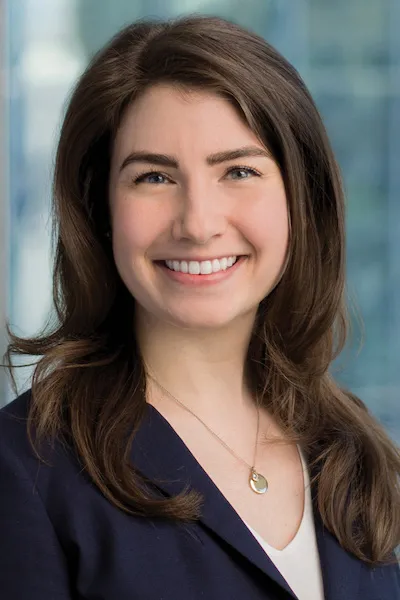Kara Ingelhart, ’15: Serving the Community as a Lawyer, Mentor, and LGBTQ Rights Advocate

Kara Ingelhart, ’15, is a staff attorney at the Chicago office of Lambda Legal, the largest law firm in the United States committed to achieving full recognition of the civil rights of lesbian, gay, bisexual, and transgender people, and everyone living with HIV. “I am very lucky,” she said. “I get to come here every day and use my experience and training to help provide a voice for courageous people who are standing up against discrimination.”
She was awarded a two-year Skadden Fellowship to join Lambda Legal right after graduation. Her work then was focused on representing low-income LGBTQ youth with criminal records, to remove barriers to their access to housing, employment, and education. Her recent cases have included representing military personnel who have been threatened with discharge or had their career opportunities limited for being HIV positive; helping to overturn laws that prevent transgender individuals from amending their identity documents, such as birth certificates and passports; protecting the rights of transgender students; and challenging the constitutionality of the Trump administration’s ban on military service by transgender people.
In addition to her case assignments, she maintains a substantial policy docket focused on criminal law reform as it disparately impacts LGBTQ people and people living with HIV. She has been a guest speaker at several prominent law schools and national advocacy conferences, and she has presented seminars and served on panels at the Illinois Bar Association and the Chicago Bar Association.
Her preparation for rights advocacy began early. Her grandfather was a journalism educator whose commitment to a free press led him to a deep understanding of legal issues and the publication of several books reviewing relevant free-speech cases. “I grew up with a sharp awareness of how the law shapes our freedoms, and a belief that I could use the law to right wrongs,” she said.
A stellar high school student with many college opportunities, she chose Indiana University in large part because it is home to the Kinsey Institute, one of the world’s foremost research centers on sex, gender, and sexuality. Majoring in biology and gender studies, she worked on several research projects at the Institute and was very active as a campus and community educator on issues of sex, gender, and sexuality. “I still regularly call on my science background and my specific fields of study to support arguments we are making,” she said. “Science can be very helpful for changing minds and reaching fairer outcomes.”
She has said that her college life was generally lived in a comfortable “liberal bubble” that was challenged when she came to the Law School. “As almost any UChicago law student learns, you have to not only be able to clearly say what you believe, you also have to be fully prepared to say why you believe it and make the case for why someone else should consider it,” she said. “I apply this learning every day.”
Her Law School experience was jam-packed. She served as president of OutLaw and as a vice president of Law Students for Reproductive Justice, earned a certificate in health administration and policy with a concentration in global health, did significant work at the Mental Health Advocacy clinic, and participated in activities of a University of Chicago Medicine innovation center that brings together faculty, staff, students, and outside experts to tackle crucial problems in sexual and reproductive health, rights, and justice. She traveled to Nepal to research police violence against transgender people.
“I had great mentors at the Law School—students and faculty alike—who helped me make the most of every learning experience,” she said. “I have tried to pay that forward through mentoring young lawyers and others, because we’re all making our way through complicated territory, professionally and personally. I remember that when my grandfather was inducted into a journalism hall of fame later in his life, he described his career as ‘joyous, replete with contention, confrontation, and excitement.’ I can say those things about my own life and work today, and I have every hope that I will still be saying them many years from now.”


